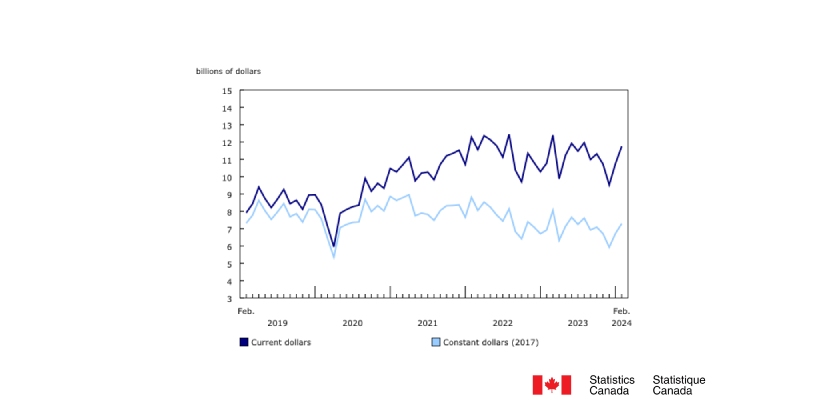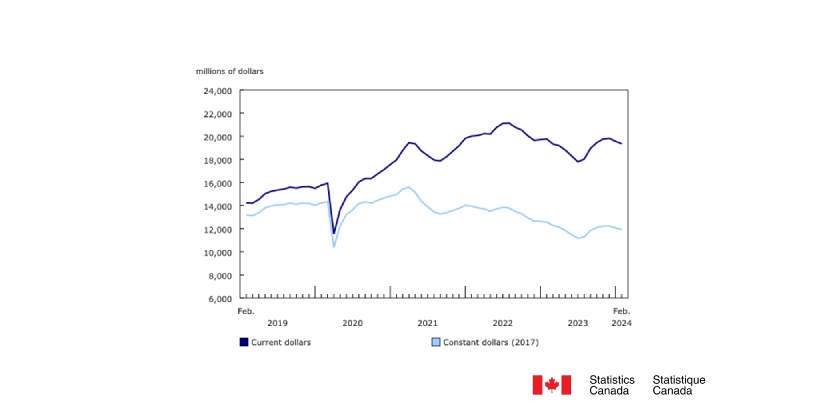Government of Canada Invests in Labour Mobility to Boost Skilled Trades

May 4, 2022
The Government of Canada is making targeted investments to create good jobs, grow our economy, and build towards a net-zero emissions future.
The Minister of Labour, Seamus O’Regan Jr., addressed the Canada’s Building Trades Unions Annual Conference in Ottawa. In his address, the Minister spoke about the Government of Canada’s support for workers in the skilled trades and construction industries, including new measures and funding under Budget 2022, creating sustainable jobs, and how the Government will move towards a low-carbon economy. The event brought together provincial leaders, industry leaders from the construction and energy sectors, and business managers to discuss the industry challenges and opportunities.
The Government is working to improve labour availability by supporting tradespeople to take up jobs across Canada. In Budget 2022 the Government committed to introducing the new Labour Mobility Deduction, which would provide tax recognition on up to $4,000 per year in eligible travel and temporary relocation expenses to eligible tradespersons and apprentices. This measure would apply to the 2022 and subsequent taxation years. Further details on the program will be announced at a later date.
The Government has also committed to increasing funding for the Union Training and Innovation Program (UTIP). Irek Kusmierczyk, Parliamentary Secretary to the Minister of Employment Workforce Development and Disability Inclusion, on behalf of Minister of Employment Workforce Development and Disability Inclusion, Carla Qualtrough, made an announcement to provide over $7 million in funding for 29 projects under Stream 1 of the UTIP. These projects will help unions across Canada improve the quality of training through investments in equipment and materials leading to a more skilled, inclusive, certified and productive trades workforce.
Budget 2022 invests to help apprentices from underrepresented groups—including women, newcomers, persons with disabilities, Indigenous people, and racialized Canadians—begin and succeed in careers in the skilled trades through mentorship, career services, and job-matching. It also proposes to launch a new union-led advisory table that brings together unions and trade associations to advise the Government on priority investments to help workers navigate the changing labour market with a particular focus on skilled mid-career workers in at-risk sectors and jobs.
To highlight the value of skilled trades workers and the wide range of supports available to build a successful and fulfilling career in the trades, the Government launched an advertising campaign earlier this year to promote the skilled trades as first-choice careers for young people and diverse populations. The campaign website (Canada.ca/skilled-trades) provides Canadians with information about what the skilled trades are, how to become a tradesperson, and what financial supports are available to them while in training.
Quotes
“The challenge before us is enormous, but so is the opportunity. Canada has a labour shortage, so we’re making it more affordable for trades workers and their apprentices to go where the jobs are. If we’re going to lower emissions, if we’re going to build more affordable housing—these are the men and women who can do it.”
Seamus O’Regan Jr.,
Minister of Labour,
“Canada’s Building Trades Unions’ applauds the Government of Canada for its support for skilled trades workers in Budget 2022. The Labour Mobility Tax Deduction for Tradespeople is something we have advocated for over two decades and will support working Canadians and families travel to where the work is, helping to address labour availability across the country. The doubling of UTIP – which has already been immensely helpful in its first few years of operations – further supports training and education, ensuring we are able to deliver the workforce of tomorrow. We are proud to celebrate these policies at our ‘Stronger Together’ conference which speaks to the challenges we’ve faced over the last several years and the strength of our workforce, who build Canada’s infrastructure. CBTU knows that together, we’re stronger now than we’ve ever been.”
Sean Strickland,
Executive Director of Canada’s Building Trades Unions
Quick facts
- Measures in Budget 2022 to support tradespeople include:
- $84.2 million over four years to double funding for the Union Training and Innovation Program to help apprentices from underrepresented groups begin and succeed in careers in the skilled trades through mentorship, career services, and job-matching.
- $2.5 million in 2022-23 for Employment and Social Development Canada to launch a new union-led advisory table that brings together unions and trade associations. The table will advise the Government on how to help workers navigate the changing labour market, with a particular focus on skilled, mid-career workers in at-risk sectors and jobs.
- On July 20, 2021, the Government of Canada launched consultations with Canadians and stakeholders, such as labour, non-governmental organizations and industry, as well as provincial, territorial and Indigenous partners, asking for feedback on potential elements of proposed just transition legislation. The deadline for written submissions is April 30, 2022.
- The Government of Canada is investing nearly $1 billion annually in apprenticeship supports through grants, loans, tax credits, Employment Insurance benefits during in-school training, project funding, and support for the Red Seal program. Announced in Budget 2019, the Canadian Apprenticeship Strategy will strengthen existing apprenticeship supports and programs by helping apprentices and key apprenticeship stakeholders, including employers, to participate and succeed in the skilled trades.
- According to the Canadian Apprenticeship Forum, to meet the demand for skilled journeypersons in Red Seal trades, an average of around 75,000 new apprentices will need to be hired per year in the next five years. Top trades most at risk of not meeting the demand include welder, industrial mechanic (millwright), bricklayer, boilermaker, cook and hairstylist.
- According to BuildForce Canada, the construction industry needs to recruit 309,000 new workers over the next decade (2021 to 2030), driven predominantly by the expected retirement of 259,100 workers (22% of the current labour force).
- In Canada, young women continue to be less likely to express interest in a career in the skilled trades. According to a survey done by the Organisation for Economic Co-operation and Development, only 2% of 15-year-old female students indicated that they were definitely planning to pursue a career in the skilled trades.
- Canada’s Building Trades Unions are the national voice of over half a million Canadian construction workers who are members of 14 international unions and work in more than 60 different trades and occupations.
















